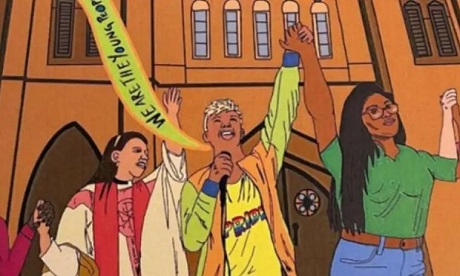Pope Francis has been the subject of what seems like unrelenting criticism for several years.
At times, it is difficult to keep up with the sheer volume of critiques and attacks on the Holy Father coming from Catholic media outlets, Catholic journalists, columnists and writers; as well as, more surprisingly, cardinals, archbishops, bishops and priests.
Some well-meaning critics try to be respectful of Pope Francis; other critics seem to have jettisoned even a modicum of respect for the successor to St. Peter.
In the run-up to the Synod on Synodality’s first month-long gathering in Rome, the critiques have only intensified.
Few things seem to stir up Francis’s opponents as much as this worldwide consultation of Catholics. (I am one of the six Americans invited by Pope Francis to participate in the synod as a voting member.)
Most recently, for example, Cardinal Raymond Burke, the former archbishop of St. Louis, penned an appreciative forward to a new book attacking the synod, saying that the process will foster “confusion and error and division.”
Perhaps one reason that there is so much public criticism is that, with a few exceptions, Francis is allowing these conversations to take place — and even commenting on his critics at times — rather than clamping down on the discussions.
But before we get into where such fierce opposition to the synod comes from, we need to look more closely at what it is.
What is a synod?
First, let’s define a synod.
It is a form of ecclesial gathering that has existed since the time of the early church, but which fell into disuse; it was revived by St. Paul VI shortly after the Second Vatican Council as a way of gathering together a variety of voices from across the church.
Later, the model was promoted by St. John Paul II, who convened many synods during his pontificate.
For his part, Francis has emphasised the synod and “synodality” as a way of listening to voices from around the church, especially those who may not have been heard from before.
One of Francis’ innovations has been to give women and other laypeople the right to vote as full members of the synod.
In this way, the pope is filling a notable lacuna left by Vatican II, which said in “Lumen Gentium,” the Dogmatic Constitution on the Church, that lay people, by virtue of their expertise, are sometimes “obliged” to offer their opinions on “things which concern the good of the church” (No. 37).
But in the decades since, they have been given few avenues in which to do so, at least at the universal level.
The synod is a step toward allowing them to fulfill that obligation.
“The synod,” Pope Francis said on Oct. 9, 2021, the day before its official opening, “offers us the opportunity to become a listening church, to break out of our routine and pause from our pastoral concerns in order to stop and listen.”
As a result, the current Synod on Synodality (that is, a synod to help the church hear the voice of the Spirit by involving and hearing from the people of God) was preceded by listening sessions on the parish and diocesan levels around the world.
The fruits of these conversations were sent to bishops’ conferences, who summarised the proceedings.
All these, in turn, were sent to the Vatican, where the worldwide responses were summarised into a working document (or instrumentum laboris).
Basically, then, the synod trusts that the Holy Spirit is alive and active among not just cardinals, archbishops and bishops, and not just among Vatican officials, but among all the faithful. So where might this fear of the synod come from?
Fear and trust
I suspect a primary fear is that there will be a wholesale change to church teaching.
Now, I cannot speak for my fellow synod members, but I doubt that any members wish to change the essentials of the faith. (I don’t.)
But anyone who knows any church history also knows that church teaching has developed dramatically on a variety of topics, including slavery, women’s roles, ecumenical relations, the liturgy, limbo, capital punishment and so on.
As Pope Francis said in a conversation with Portuguese Jesuits during World Youth Day, “doctrine also progresses, expands and consolidates with time and becomes firmer, but is always progressing.”
But I often wonder if the deeper opposition is to something else.
After we dig into the political, the sociological, the ecclesiological, the theological, even the spiritual, we have to ask ourselves two questions:
First, do we trust in the Holy Spirit?
And second, do we believe that the Holy Spirit is active both in this gathering of the faithful and in the individual consciences of the people participating in the synod?
Throughout church history, we have been invited to trust in the Holy Spirit during times of uncertainty—with Pentecost as the defining example, but elsewhere as well, as during ecumenical councils and papal conclaves.
We may also need to ask a third question:
If we trust in the Holy Spirit, why would we be fearful of Francis’ vision of the synod as a gathering where all voices are heard? Read more
- The Rev. James Martin, S.J., is a Jesuit priest, author and editor at large at America.
- First published in America magazine.
News category: Analysis and Comment.




